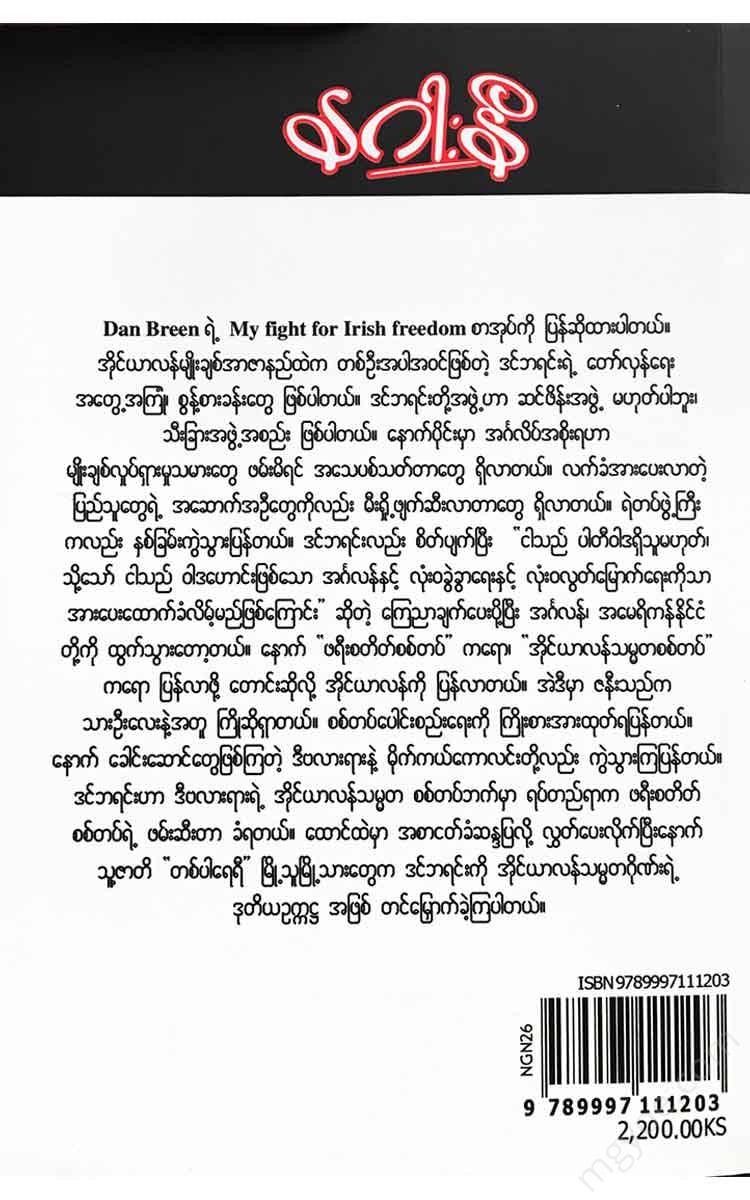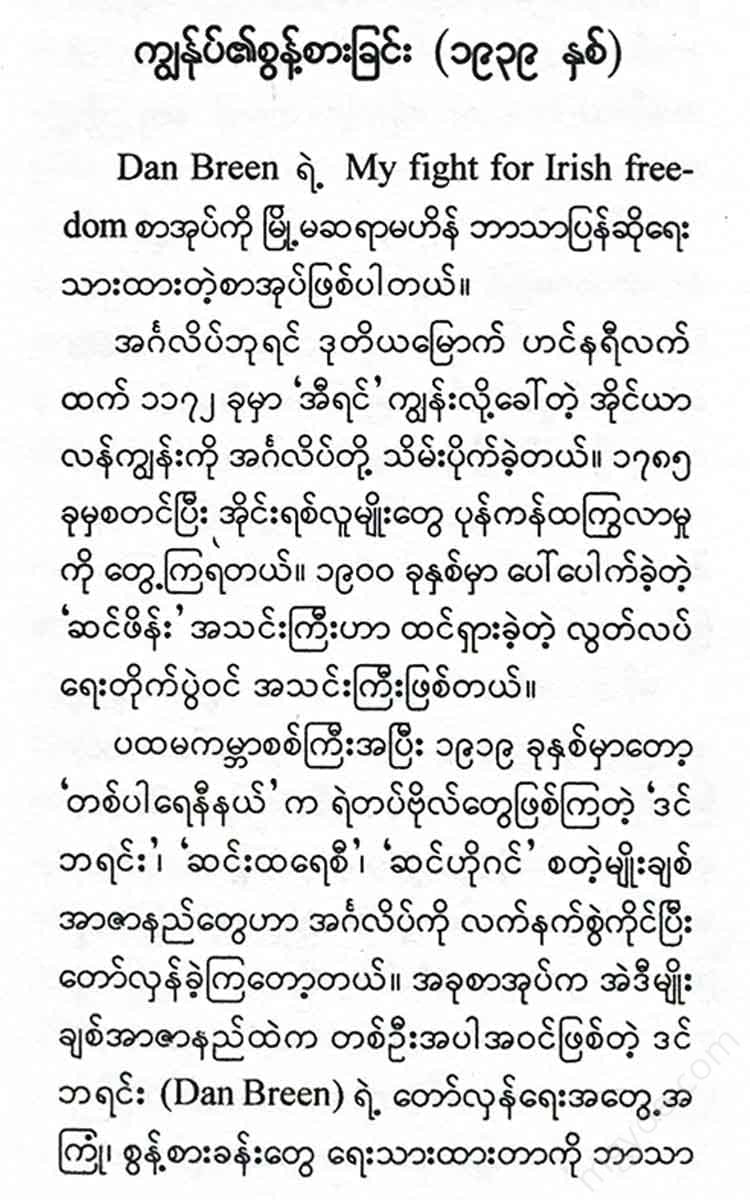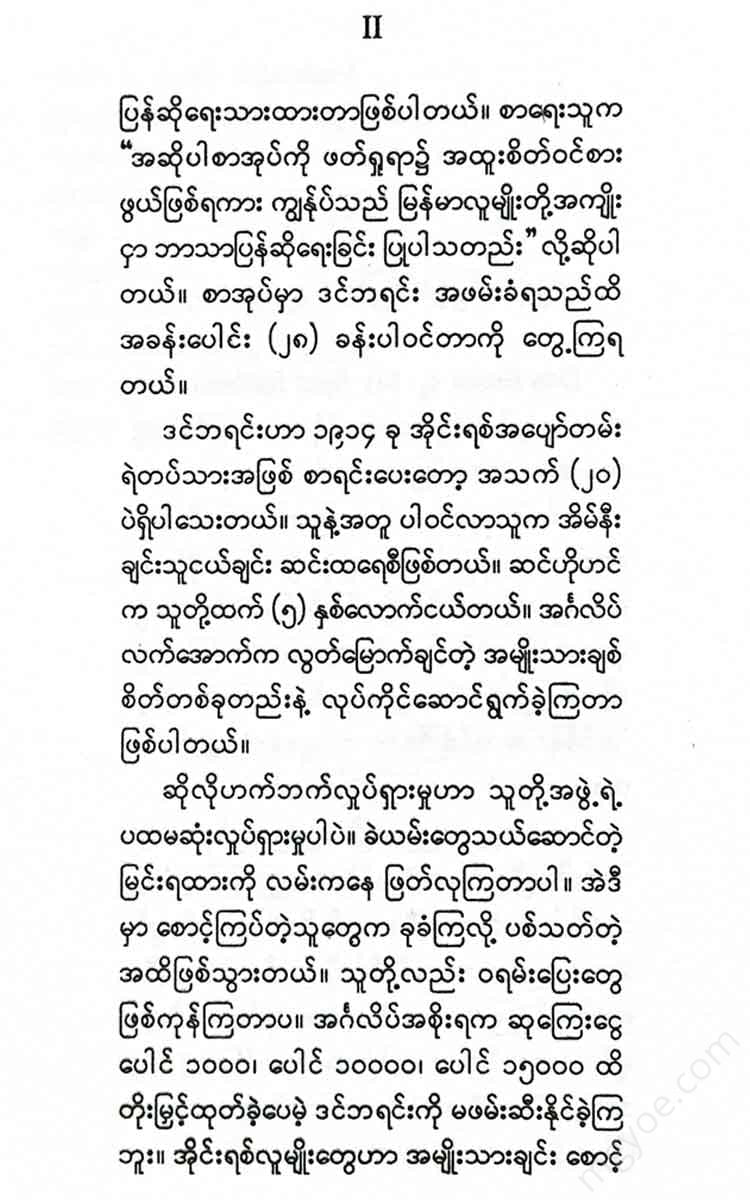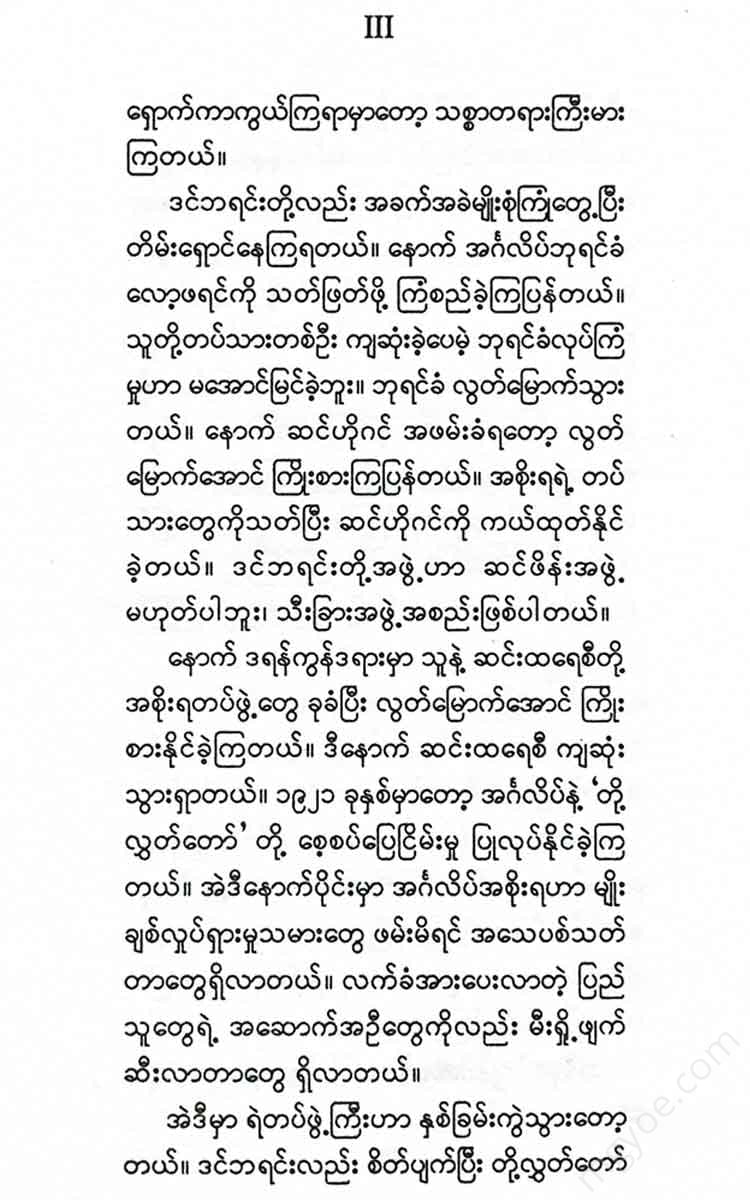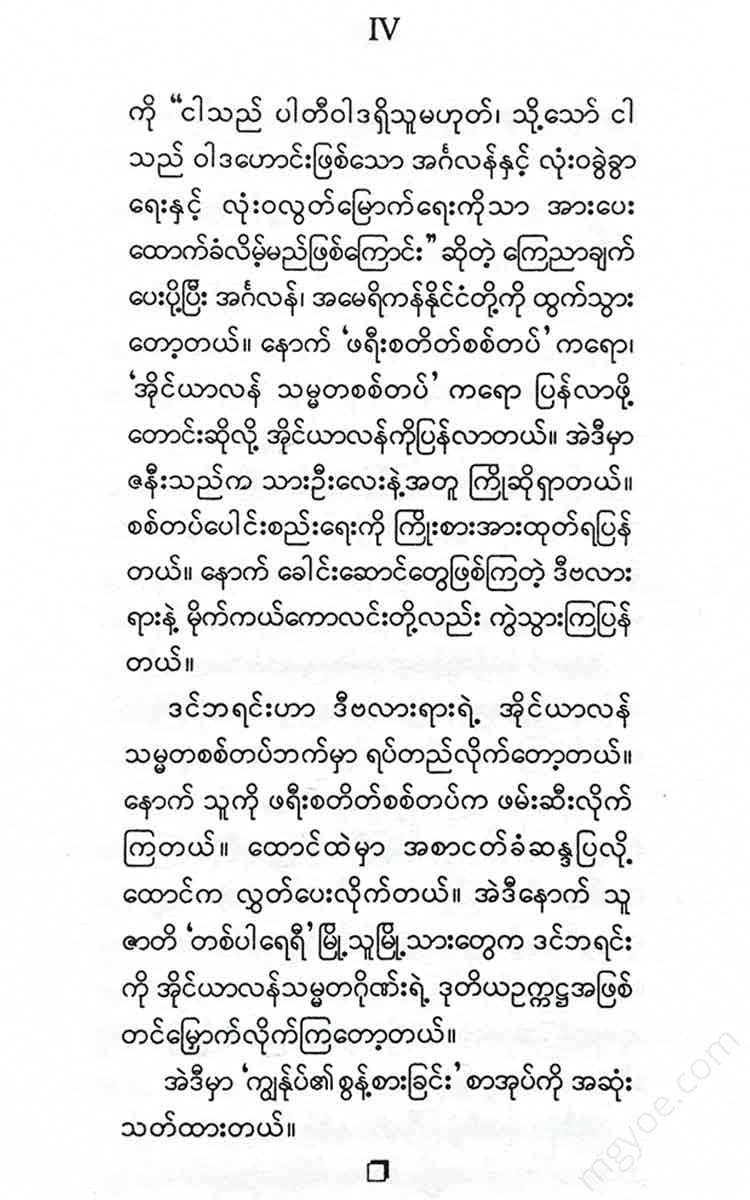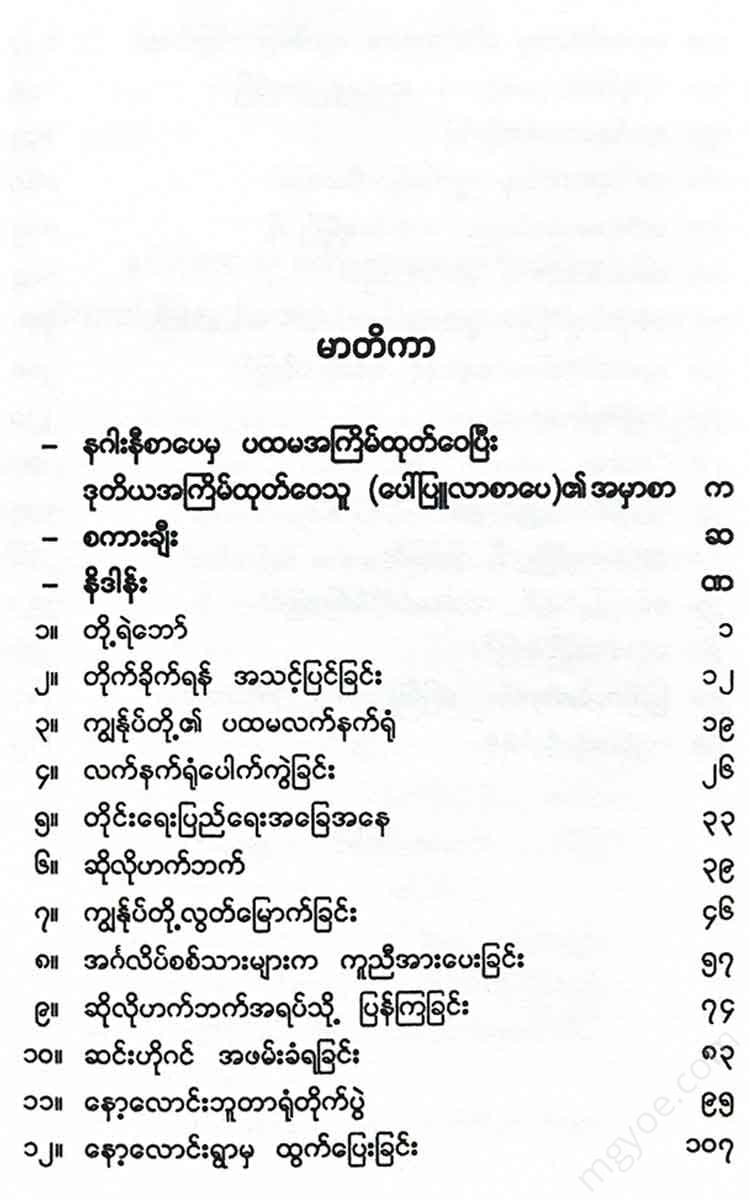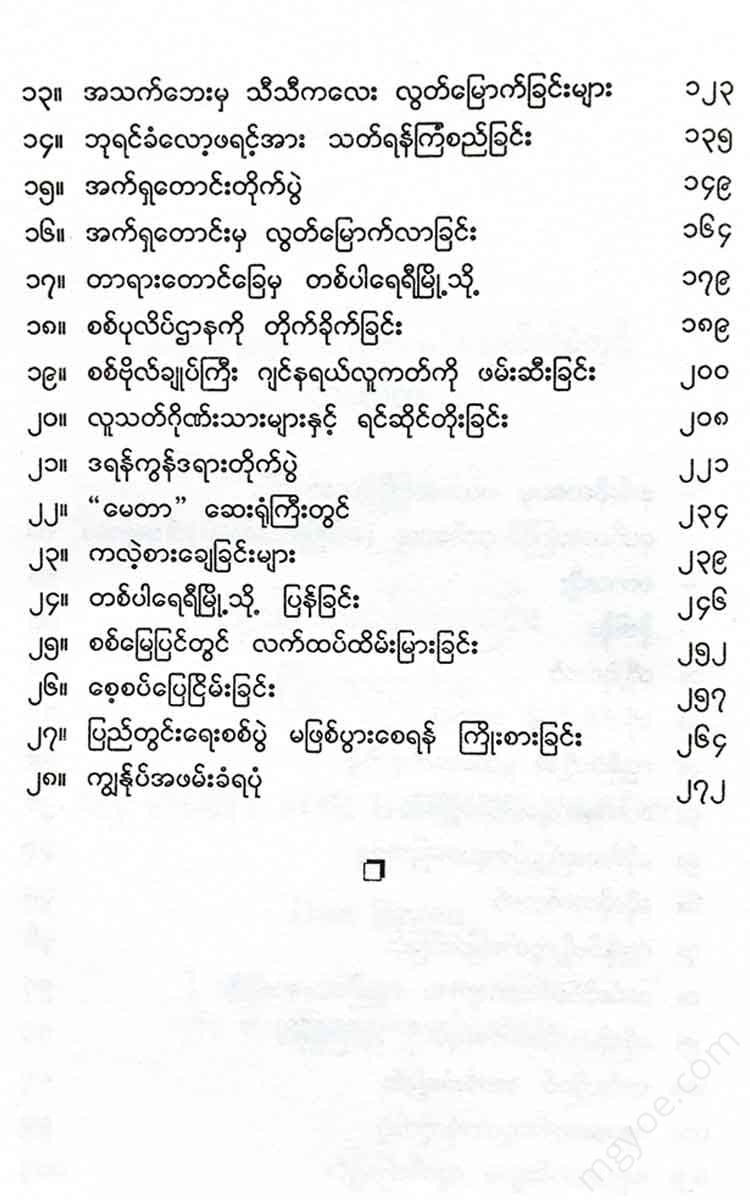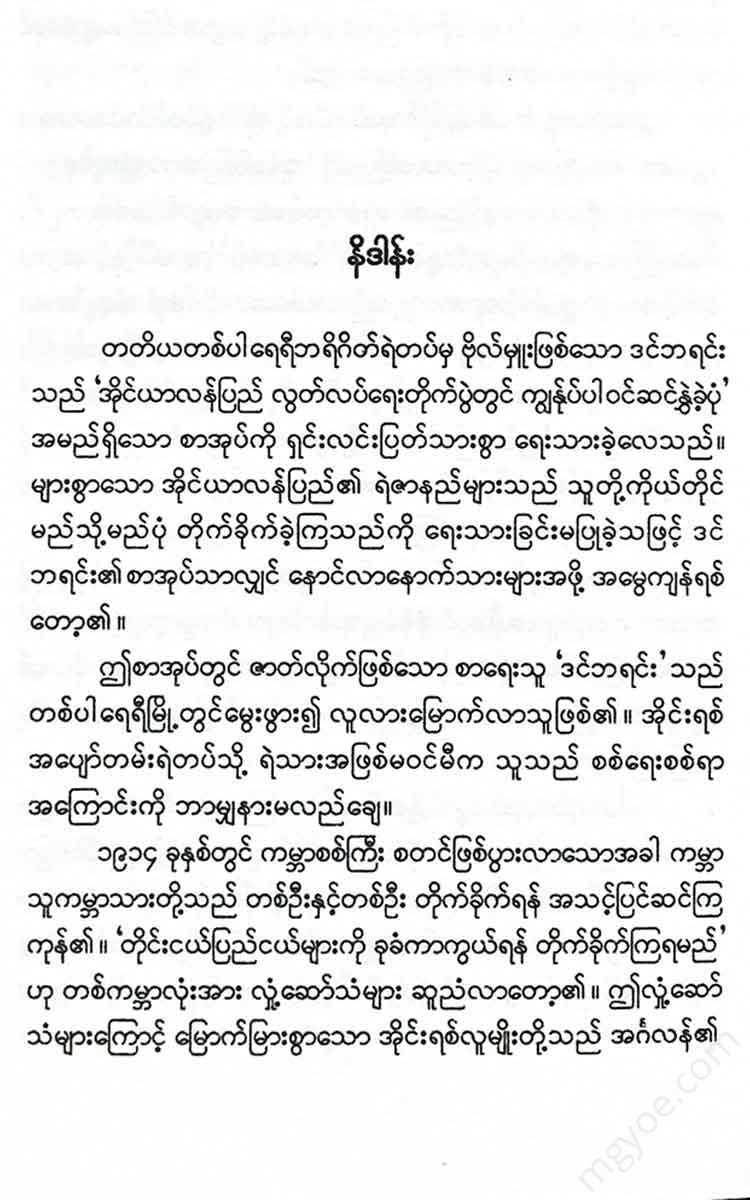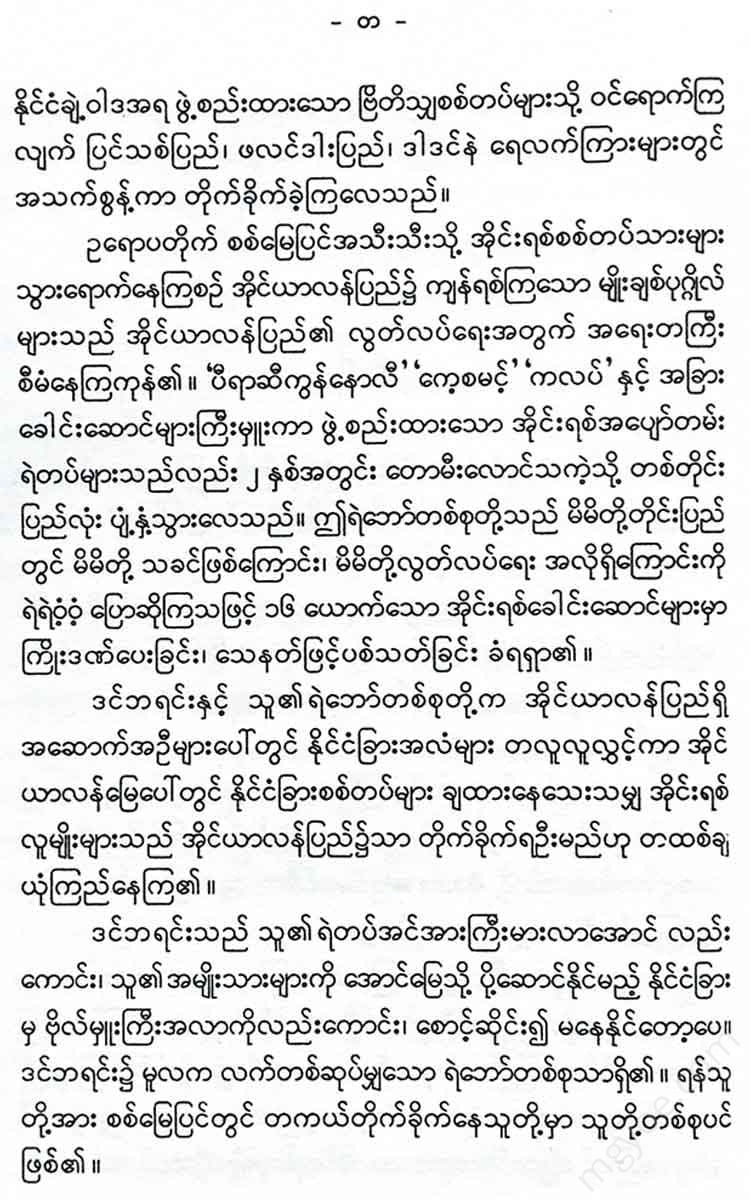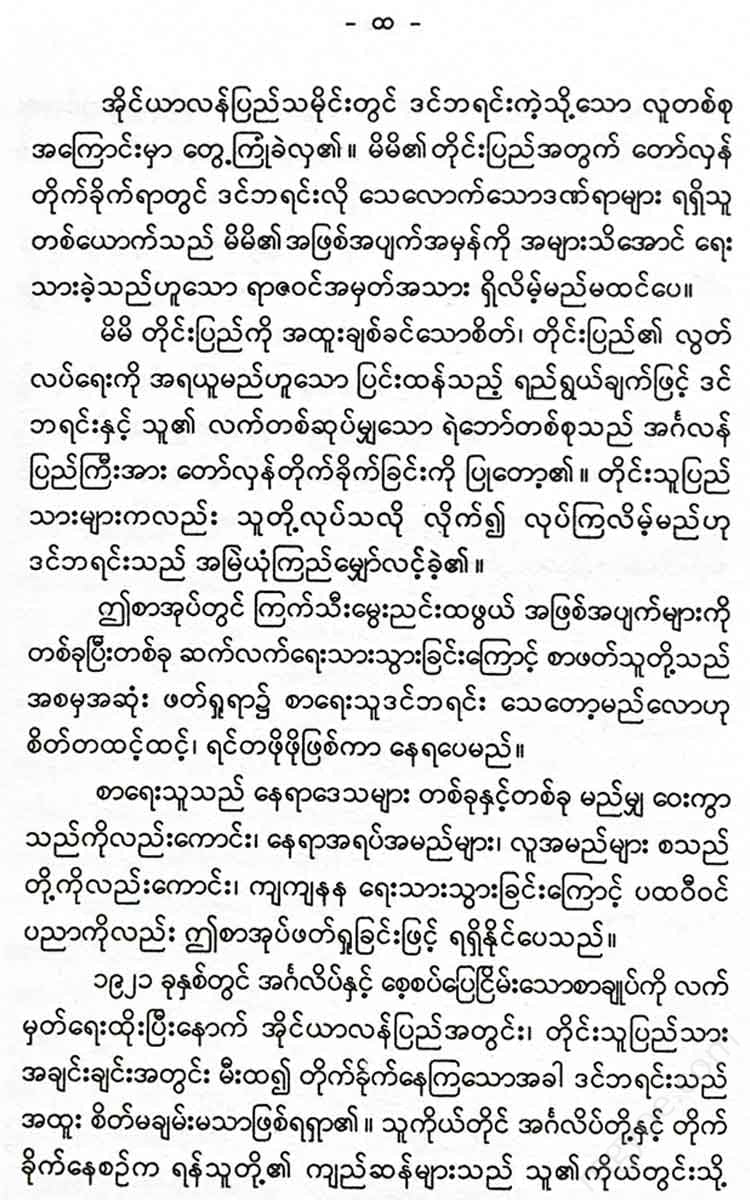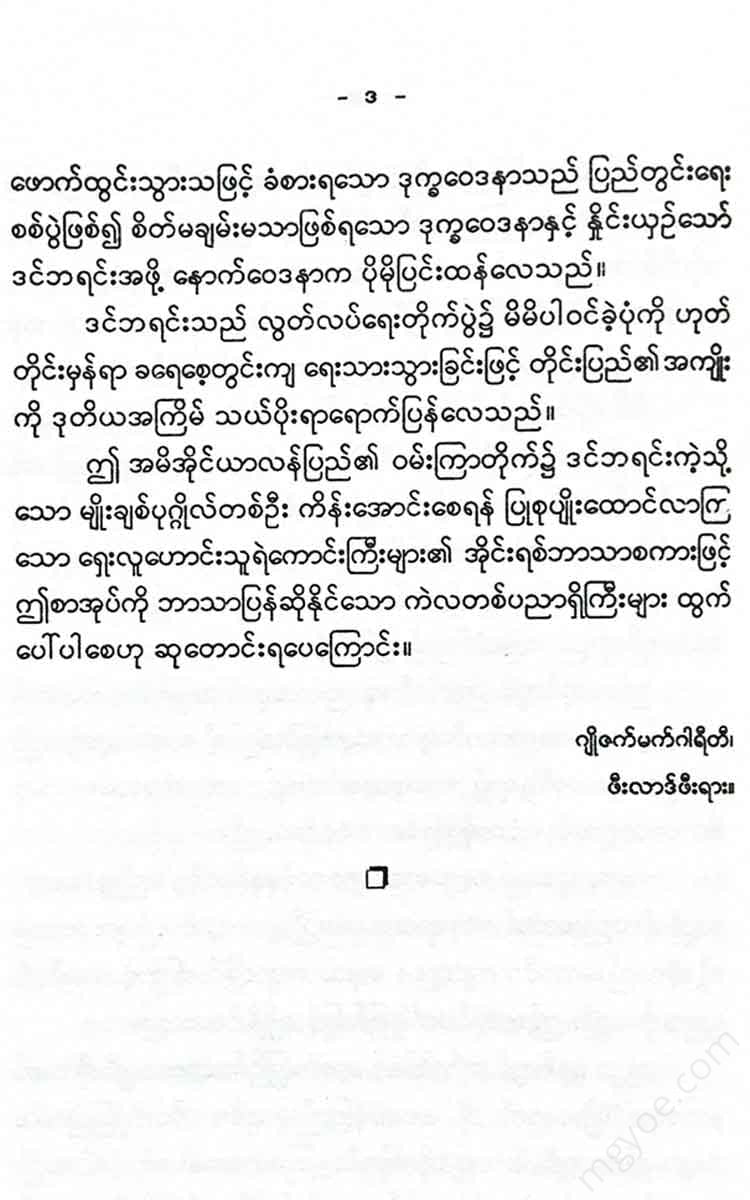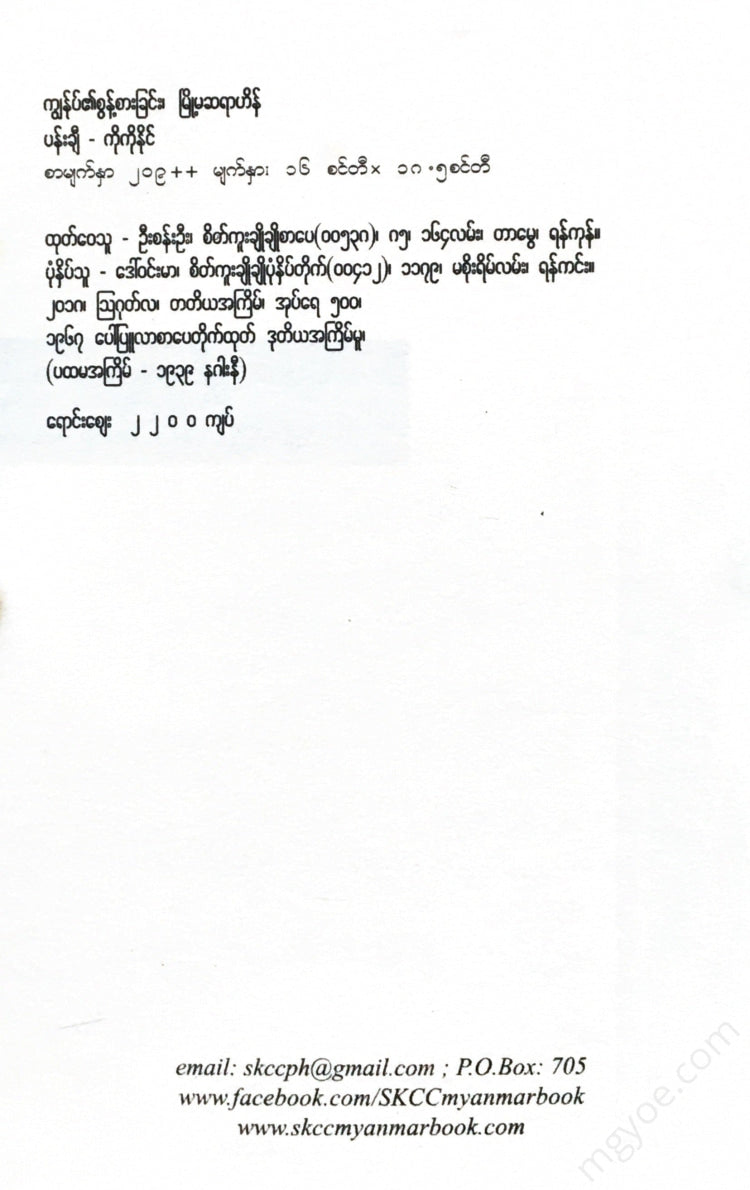စိတ်ကူးချိုချိုစာပေ
Myoma Saer Hein - My Adventure
Myoma Saer Hein - My Adventure
Couldn't load pickup availability
I first enlisted as a volunteer in the Irish Volunteers in 1914, in the village of Donohoe, four miles from Tipperary. I was then only twenty years old. The police soon began to call me “Sinn Fiennes.” Later, the same police would give me the nickname “Killer Prince.” Let us pause here to describe the political situation in Ireland at that time.
The English Parliament had passed a resolution to grant Ireland a Home Rule. The Home Rule Bill was passed by a small minority of Irishmen in the north of Ireland who declared that they would oppose the opening of a Parliament in Dublin. They were supported financially and in person by the wealthy English "Tory" members. The Irishmen had formed groups and were preparing to take up arms and march in preparation for a revolt against the English Parliament.
At that time, the Irish people were not yet familiar with the nationalist ideology of Sinn Féin. The majority of the Irish were controlled by the "Parliamentary Party" led by John Redmond. Intelligent leaders such as Peirce and Mackinney planned to imitate the police of the Orange County and to make the rest of the Irish people police. Peirce and Mackinney encouraged patriots to join the militia. There were also those who favored "Finnism" (violent ideology). Those who did not want the Home Rule Bill thought that their right had been served. The Irish Police Force was formed as a result of the call for the establishment of a police force.
When the First World War broke out in 1914, three separate armed forces emerged in Ireland, each with its own purpose and uniform. These forces were the British Army, the Irish Volunteers in Northern Ireland, and the Irish Constabulary.
When the First World War broke out, John Redmond and his followers joined the British in urging Irishmen to join the British army. The Orange Volunteers also volunteered to help the British.
At that time, the Irish constables were also divided among themselves and seemed to be getting along, and many of the Irish constables joined the English army. But only a stubborn group of young men were listening, looking only at the interests of Ireland. It was this group of patriotic young men who did not believe the British's cunning excuses of "fighting to protect the small kingdoms" and "fighting because the honor of the treaties was being violated." This group of young men cared only for the complete independence of Ireland. The eloquent among them were supporters of the principles of the Sinn Féin party, and they were called "Sinn Féin constables."
Our little regiment in Donohoe was a branch of the aforementioned minority of patriots. We did not heed John Redmond's words to enlist in the British army. We were to conduct a military parade and drill in order to "invite" the English, who were considered our only enemy, when the time came.
During the Great War, the police kept a close eye on us. They accused us of being “German sympathizers.”
After reading these false accusations, many Irish people supported the British in the Anglo-German war. The British soldiers who were living in dugouts on the battlefield were given a fund to help them, and the British government officials, Irish nobles and landowners especially encouraged them and contributed to the fund. We Irish policemen were not among these people. I did not contribute a single penny to this fund, and the police hated me. I was working for the Great South-Eastern Stanley Railway, and the police “scared” my superiors that I was a traitor.
Let me explain to you about these police forces. The Royal Irish Constabulary, whose name now remains in history, is not like the police forces of other countries. After training the policemen to handle weapons and then giving them rifles and cartridges, they are the “military police” who combine military skills with police work. (We also have such police in Burma. They are even called “Military Police”). In fact, there is almost no crime in Ireland, but the work of these military police is to keep us, the Irish constabulary, and those who are striving for the complete independence of Ireland. They are even reported to the higher authorities about the sermons preached by Irish monks. Depending on the area, in some villages, there are two, There were ten in some towns, twenty in others, and so on, and these police were stationed throughout the country, making a total of about ten thousand. These police were mostly of Irish descent, and they were the brains of the British army in Ireland. For the 40,000 or so British soldiers in Ireland were not well-versed in the country, its people, or its history, and they could not have done anything effective without the assistance of these members of the Royal Irish Police.
When the World War broke out I was still doing my job every day. In the Irish Constabulary in our town we did no more than an ordinary policeman. We had parades once or twice a week. We often had to pick up any weapons we could find, whether rifles or revolvers. At that time our policemen had few weapons.
We collected arms in the above manner from 1915 to 1916. When the great war of independence began in Dublin on Easter Sunday, 1916, the orders that came to us were so varied that we were unable to show our strength.

